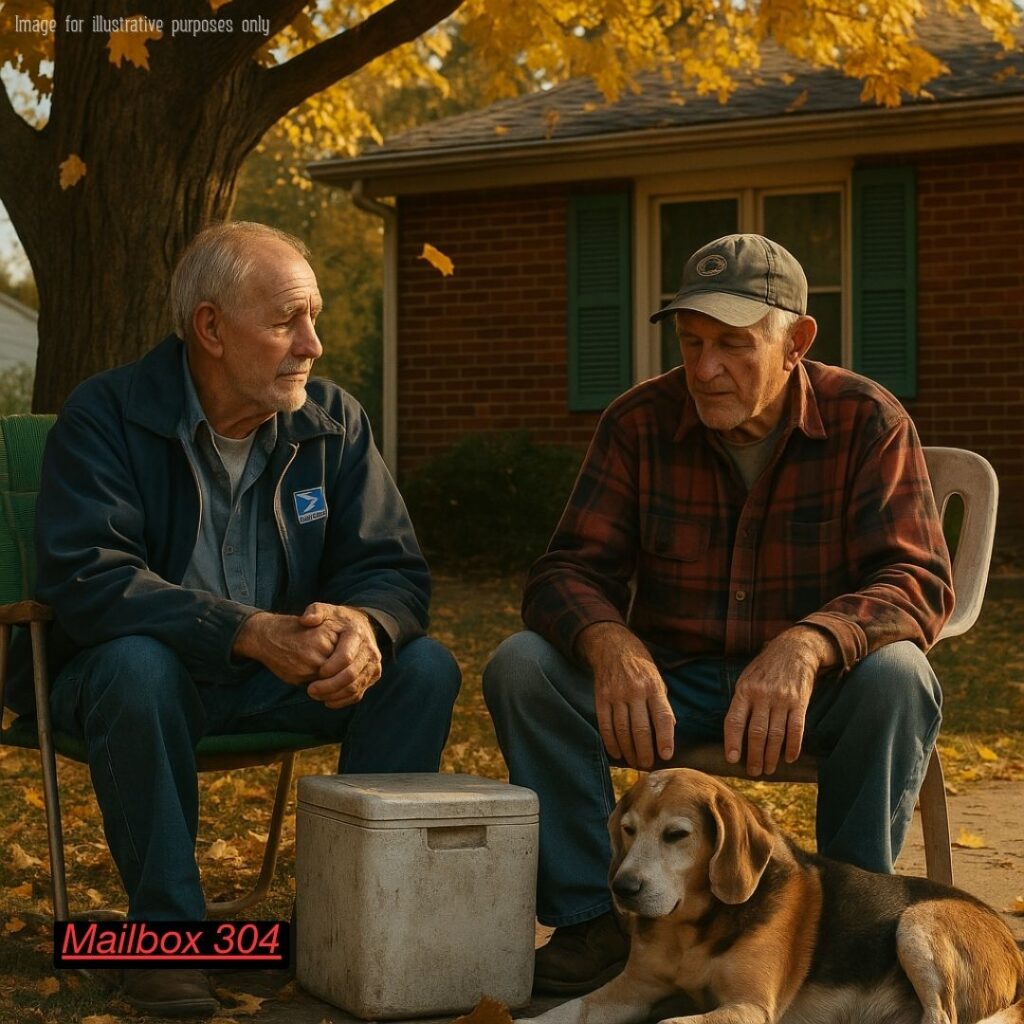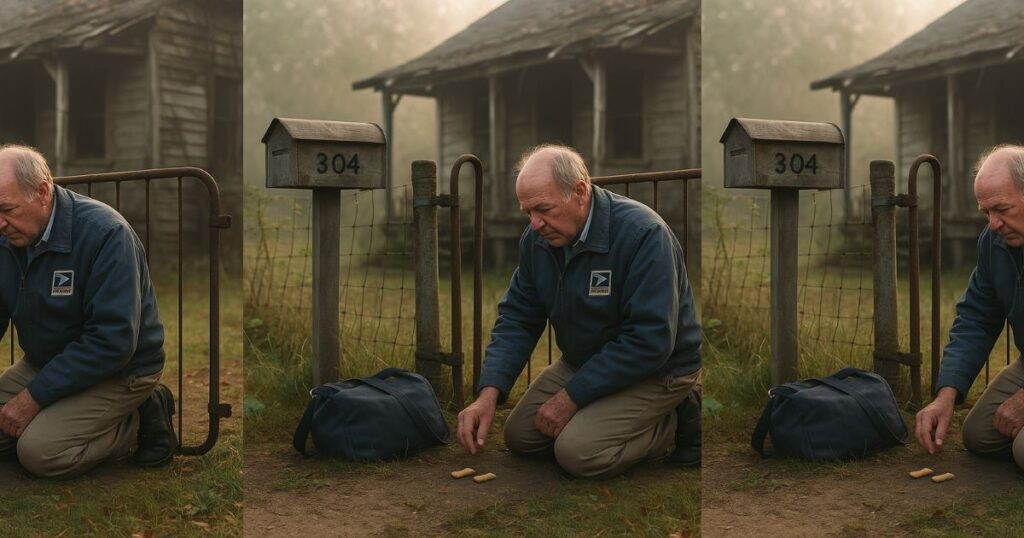Part 4 — The Sunday Chair

The last time I saw Earl alive, he was sitting in that busted lawn chair like it was the front pew of a church.
Earl lived three doors down, in the brick ranch with the green shutters that hadn’t been straight since Clinton’s first term. He was the kind of neighbor you borrow jumper cables from, even if you’ve got your own, because he’ll tell you a story while the engine turns over.
We’d been trading favors for years. I’d mow his strip when his knees acted up. He’d walk Harvey when my sciatica did the same to me. We weren’t close in the way men sometimes pretend to be, all beer and ball games. We were close in the way that doesn’t get called friendship because it’s quieter than that.
That Sunday was October, the kind that smells like woodsmoke and apples and the faint ache of endings. Earl was in his lawn chair under the maple, a faded Packers cap shadowing his eyes, a flannel shirt buttoned wrong. Beside him, on the cracked driveway, sat a Styrofoam cooler I knew had more stories in it than beer.
“Mailman,” he said when I wandered over. He still called me that, like retirement was just a vacation I’d forget to come back from.
“You holding court?” I asked.
“Just holding,” he said. His voice was thinner than the last time.
Harvey went straight to him, tail swishing slow. Earl reached down, rubbed his head in that absent way you do when your mind’s on something bigger.
We talked about nothing—price of gas, the fact that the town council wants to tear up Main Street “for improvements” that nobody asked for. The maple dropped leaves between us, and I noticed Earl’s hands were trembling even when he wasn’t reaching for the cooler.
“You look tired,” I said.
“Been a long week.” He paused. “Got the results Tuesday. Ain’t the kind that gets better.”
I didn’t ask what. Some words are too heavy to carry in public.
Instead, I looked at Harvey. “Guess you’ll have to come keep me company more often.”
Earl smiled—small, crooked. “Guess so.”
We sat there until the sun dropped low enough to paint the shutters gold. Then he said, “You know that porch step you fixed for Whitney?”
“Yeah.”
“She told me about that little mailbox thing you’re doing. Folks helping folks. I like that.” He pulled something from his flannel pocket and held it out—an old brass house key on a frayed shoelace. “This is for when I can’t get up to answer the door. You see something needs doing, just do it. Don’t ask.”
I took it. Felt heavier than a key ought to feel.
The next Friday, there was an ambulance outside Earl’s place. Lights spinning, no siren. The quiet kind of trip. His lawn chair was still under the maple, one armrest cracked where his weight had leaned.
The daughter from Cincinnati came that weekend. Packed the house with cardboard boxes and sighs. She didn’t know me except as “the mailman down the street.” When she left, the lawn chair went to the curb with the rest of it.
I brought it home. Fixed the armrest. It still wobbles.
Now, on Sundays, I sit in it by my own maple with Harvey at my feet. I keep Earl’s key on the same ring as Bentley’s tag, and sometimes it knocks just right, like they’re having a conversation without me.
ENDING
I used to think you measured a man’s life by the big things—jobs, marriages, the kind of trophies that need dusting. But I’ve been wrong about a lot of things. Earl taught me the truth without meaning to: it’s the favors traded, the chairs shared, the keys you give away before you’re gone. And if you’re lucky, someone keeps your seat warm long after the game’s been called.


